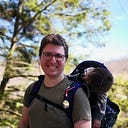How can one relate the distribution of mountain ranges with the distribution of earthquake epicenters and volcanoes?
Sharing some geology knowledge
Most mountain ranges are built along plate boundaries where the plates are crashing together. This collision of tectonic plates can result in a crumpling of the crust (as you find in the Himalayas) or a buckling of the crust over a zone of subduction (subduction being where one tectonic plate is pushed over another).
If you have a collision of tectonic plates without one being subducted under the other, as is the case in the Himalayas, you will have a (geologically) violent crumpling of the Earth and, as we all know, that is where you have the highest mountains of the world.
Anyone who hasn’t been living under a rock since before the recent Nepal quakes should know that there are very big earthquakes that can be associated with this collision. Earthquakes, in this situation, are highly correlated with mountain ranges, but they are not correlated with the growth of a specific mountain. You would not expect volcanoes in this type of continental collision.
Where you have a mountain range resulting from a buckling of the crust and subduction (see the graphic below) as you have in the Andes or in the Cascades of N. America, mountains grow as a result of collisional crumpling, the dragging down of the over-riding continental plate to generate a buckling of that plate and subduction-related volcanism.
As you might surmise from the above graphic, earthquakes are very much correlated with the zone of mountain building in this area, but they are more strongly correlated with the region in general. They are not mountain-specific and are less related to the volcanic zone than to the area where the collision is actually occurring. The distribution of volcanoes in relation to an area like this is fairly predictable on a large scale.
